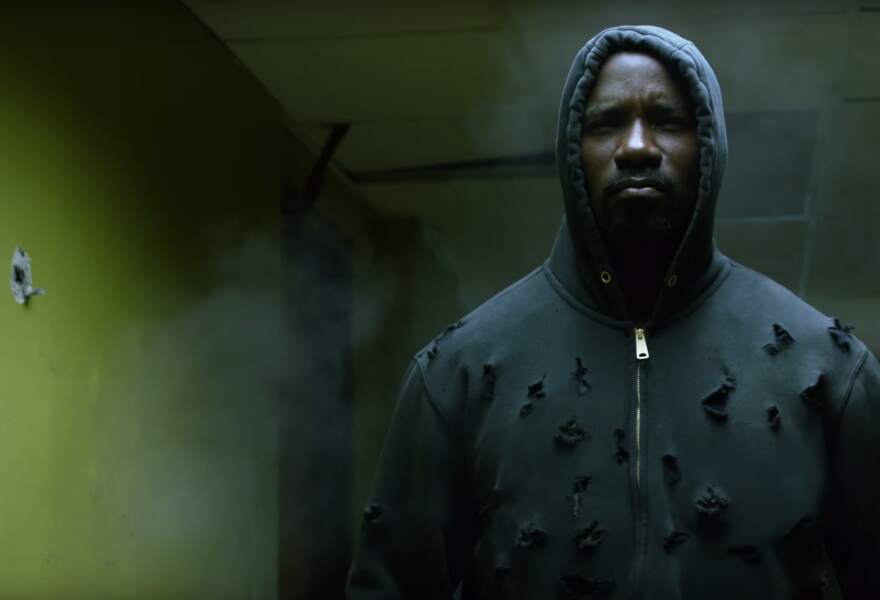Take Two translates the day’s headlines for Southern California, making sense of the news and cultural events that affect our lives. Produced by Southern California Public Radio and broadcast from October 2012 – June 2021. Hosted by A Martinez.
Marvel's Luke Cage and the cultural significance of a bulletproof black man

The long anticipated Netflix series, Luke Cage, is now available to stream.
The character first appeared in comics in 1972, coinciding with the released of blaxploitation films of the era. Also known as Power Man, Cage was created by Archie Goodwin, John Romita, Sr. and George Tuska. Here's the cover of the first issue, Luke Cage, Hero for Hire #1.
http://cdn.collider.com/wp-content/uploads/2016/08/luke-cage-hero-for-hire-comic.jpg
Cage was imprisoned for a crime he did not commit, but gains superpowers in the form of unbreakable skin and superhuman strength.
The new Netflix version updates many aspects of the original character. Instead of a massive chain around his waist and a steel headband, he wears boots and a hoodie.
We talked about the cultural significance of the character with Adilifu Nama, professor of African American Studies at Loyola Marymount University and author of the book, Super Black: American Pop Culture and Black Superheroes.
https://images-na.ssl-images-amazon.com/images/I/51JhYkhBMUL.jpg
The character's origins are steeped in social conflicts. After Cage was sent to Seagate Prison in Georgia, he became the target of a brutal and racist white guard. But later, he volunteered for an experiment that would allow him to receive early release, but that same guard tried to sabotage the experiment, hoping to kill Cage. Instead, the treatment have him superhuman strength and durability.
Professor Nama talked about these elements, that reflect historical events like the Tuskegee experiments and prison reform.
In my mind that's what makes Cage an interesting figure ... in many ways he's critiquing the criminal industrial complex of the early 1970s against the backdrop of the prison justice movement that was going on ... [also] the medical experimentation element in which black men and probably women in different categories and situations have been used as medical guinea pigs ... this makes an excellent point. Luke Cage is not just a disposable comic that is for the kiddie crowd, it really has some serious social, political and cultural themes ...
A Martinez asked Professor Nama about the character's power, and the recent shootings involving black men. Does Luke Cage have an especially relevant meaning?
It's extremely relevant but also problematic. There's a way in which - at a time when black men in particular are experiencing this confrontation with the lethal force of policing - where they have proven that they are not bulletproof. To have a black man, where that is his calling card, in some ways is a two sided representation. I see Luke Cage and I wish Trayvon Martin was Luke Cage ... I wish Tamir Rice had bulletproof skin ... but it is also problematic because it reaffirms the notion of the black body and the black man as being over-powered, over-determined ... having to in fact be something to be afraid of ...
Adilifu Nama is a professor of African American Studies at Loyola Marymount University and author of the book, Super Black: American Pop Culture and Black Superheroes.
Click on the blue arrow to hear the entire interview


